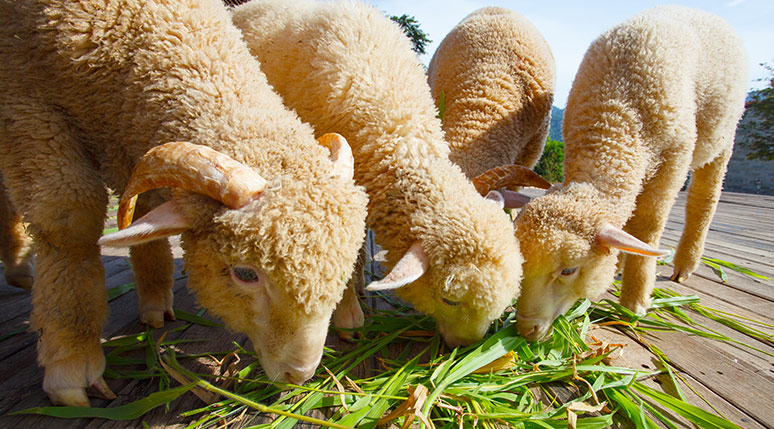Your cart is currently empty!
Stock drenching with organic Apple Cider Vinegar is a safe, robust and cost-effective method for increasing the overall health of your animals. But let’s take a look at some of the specific ways to treat animals with ACV.
We’ll keep adding to this information but would like to thank The Complete Cider Vinegar Book for providing some great examples.
Cattle
Stock Bulls
Stock Bulls on a regular 100ml (4 fl oz) daily ration tend to maintain semen of high fertility, even during slack periods. The treatment also stimulates bulls who are uninterested. Mrs E.M.C. in Farming Express says that she gives cows half a pint (275 mls) of Cider Vinegar before service and had all her cows and heifers in calf during the last winter. The vet said he was not certain of the action of cider vinegar on fertility, the possible explanation being the rich mineral properties of the vinegar, particularly the trace elements which may be of value in breeding efficiency.
No one seems to have tried this application on people!
Arthritis and Rheumatism
More and more farmers are reporting success in the treatment of arthritis and rheumatism even when the cattle have been too lame or stiff to rise or to graze effectively. Two ounces a day of Cider Vinegar has given cows destined for the stewpot several years of active happy life with useful milk yields. It is very important to give the dosage regularly.
A Dysentery Type Scour
Mr L.E.V. of Ellesmere wrote to say that he had a seven-year-old Jersey cow who, for no apparent reason, began a dysentery type scour. The vet was called in, he says, and treated it with an armoury of drugs and drenches. As soon as the treatment ceased the cow immediately became worse again. “I then decided to try my own herbal medicines. I drenched the cow twice a day with 4 fl oz of Cider Vinegar, and a large tablespoonful of pure honey all in a half pint of warm water. After three days the cow had started to chew her cud, which was something she had not done for 5 days on orthodox veterinary treatment.” At the time of writing he said that the cow was still improving steadily and he is now putting Cider Vinegar in her drinking water.
Pigs
Farrowing Fever
For prevention in susceptible sows, give them 50ml (2 fl oz) a day for from 2 to 3 weeks prior and 1 to 2 weeks after farrowing. The piglets are usually more active and the sow does not lose her appetite. If she has farrowing fever then give 50ml (2 fl oz) daily for at least 10 days.
Farmer G Chatham of Kingsbridge found he was constantly having large veterinary bills because of farrowing fever. His losses of pigs and consequent debility were very bad. He used the 50ml (2 fl oz) for 2 weeks before and 1 week after treatment and reported a marked improving in his breeding stock. Since using Cider Vinegar he had no cases of farrowing fever or similar udder troubles. The young pigs were more lively and less laid on by sows. Since using Cider Vinegar he was of the opinion that both the quantity and quality of his pigs has greatly improved. He has asked that his experience be shared with other breeders to cut their losses by such a simple but safe treatment.
Scouring
As with calves, bacterial and nutritional scouring is often cured with Cider Vinegar in the drinking water of pigs.
Farmer K.J.R. of Newport, Isle of Wight had one pig which was scouring so badly it was almost dead. 10 days after the Cider Vinegar treatment was begun, the pig was back to normal.
Farmer D.F.W. of Chard has 22 breeding sows, some three years old. In the past he has had to have the vet 2 or 3 times to each at farrowing time. Now, sometimes the vet comes once and sometimes not at all. He is having better litters with 9-12 reared. His vet’s bill is down by two-thirds.
Incidentally, just before farrowing, he gives the sow either a pint (575 ml) of stout or 1 ½ pints (750ml) of rough cider and finds this makes them so docile that they lie down and farrow half asleep.
Goats
In general, the treatments for goats are about half that for cattle.
Mr J.L.R. of Colchester who has a herd of dairy goats, found Cider Vinegar particularly effective in the treatment of acetonaemia.
Poultry
Turkeys and chickens have been reported to show an improved rate of growth when a teaspoonful of Cider Vinegar is added to each litre (quart) of drinking water.
Mr John Woods of Preston, a poultry keeper on a considerable scale, made a controlled trial on birds in battery cages which had poor shell texture following respiratory infection. He added the Cider Vinegar at 1 per cent, that is 2 ½ gallons (10.5 litres) per ton of feed. The addition was known to no-one but himself and his mill operative and he frankly said that he had little confidence of any beneficial results. He checked the shell texture at the end of 2 weeks with no apparent change. Almost as an afterthought, he checked again at the end of a month and found a most marked improvement. He assessed the number of cracked and porous eggs was reduced by 80% in the treated group.
Horses and ponies
The suggested doses are 75 ml (3 fl oz) a day for small ponies, horses up to fifteen hands 100 ml (4 fl oz ), and over fifteen hands 175ml (5 fl oz) per day. As many horses are rather conservative in their eating habits it is best to give it with their favourite food. Drenching is not recommended for horses and ponies with Cider Vinegar or other fluids for that matter, unless it is done by a verterinary surgeon, as the procedure can lead to respiratory complications.
Lost Appetite
A ration that is high in concentrates frequently causes horses and ponies to become bored, when they lose interest in their food. The use of Cider Vinegar on the feed often stimulates the appetite, as well as improving the general condition.
Dung Eating
This rather unpleasant habit is clearly discouraged by the rapid removal of the dung. It could be, however, that it has a nutritional origin because a course of Cider Vinegar, which is rich in minerals, often cures the condition.
Coat Condition
Horses and ponies improve the suppleness and bloom of their coat when on a course of Cider Vinegar in a significant number of instances.
Poisoning
Because of the effect that Cider Vinegar has both in improving the appetite and in restoring the intestinal organisms that are so often altered or destroyed either by accidentally-eaten poisons or veterinary treatment with a similar effect – for example, antibiotics often damage the bacteria essential to good health, even though they may be necessary for treatment – there will be a gradual but helpful assistance from the use of Cider Vinegar in such circumstances, when used in addition to the usual procedures.
Equine Influenza and Cough
Lord C. from Dorset writes that he has been feeding Cider Vinegar to horses for a number of years and although they have mixed freely with sufferers from cough or equine flu, they have so far been immune. Perhaps this is a result of the Cider Vinegar treatment.
Cider Vinegar Works Wonders for Racehorses
The famous racehorse Noble Dancer , who in 1978 won US$400,000 in prize money, was a regular user of Cider Vinegar for health and fitness. More and more trainers are giving their thoroughbred horses Cider Vinegar and saying that it keeps them in the peak of condition in a quite remarkable way. Indeed, several trainers have told us of their experiences with Cider Vinegar but forbidden us from mentioning their names or their horses because they want to keep this secret weapon to themselves! However, it can be revealed that Nobel Dancer takes Martlet Cider Vinegar whereas the famous trainer, David Morley from near Bury St Edmonds insists that the Cider Vinegar for all his horses must be made from Aspail organically grown Cider Vinegar.
Today, many horse owners including famous regiments and members of the Royal Family as well as leading trainers have become regular users for their livestock and praise the importance and value of Cider Vinegar.
Sheep
Twin Lamb Disease
This is a toxaemia of pregnancy which usually occurs in ewes in the fourth or fifth months of pregnancy, often when they are carrying two or three lambs. When contracted, it is frequently fatal, so prevention is important. The incidence has been said to reduce when 2 fl oz of Cider Vinegar are sprinkled over the concentrate. Treatment is certainly worth trying using a drench with 150ml (1/4 of a pint) of Cider Vinegar and an equal amount of warm water and then 50ml (2 fl oz) a day for one or two weeks.
Want more information on treating animals with ACV?
Other websites that have good information on the use of Apple Cider Vinegar for stock management are :
http://www.lavenderfleece.com/cidervinegar.html
http://www.isfaxa.com/maintenance
http://www.crossgatesfarm.co.uk/downloads/acv_all.pdf

